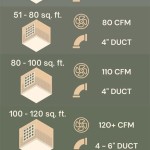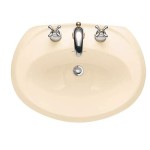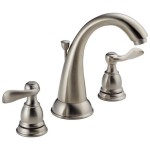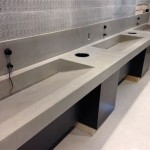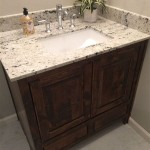What Kind of Paint for Bathroom Walls and Ceiling?
Choosing the right paint for your bathroom walls and ceiling is crucial for both aesthetic appeal and long-term durability. The bathroom environment presents unique challenges due to high humidity, frequent temperature fluctuations, and exposure to moisture from showers and baths. Selecting a paint that can withstand these conditions is essential to prevent mold growth, peeling, and other issues that compromise both the appearance and health of your bathroom.
Factors to Consider When Selecting Bathroom Paint
Several factors should be considered when choosing paint for your bathroom. These include the following:
1. Moisture Resistance
The most important factor is moisture resistance. Bathroom walls and ceilings are prone to condensation, splashes, and spills, making it essential to use a paint specifically designed to withstand moisture. Look for paints labeled as "moisture-resistant," "humidity-resistant," or "mold-resistant." These paints typically contain special additives that repel water and prevent mold growth.
2. Durability
Bathroom paint should be durable enough to resist wear and tear from cleaning, scrubbing, and general use. High-quality paints with a durable finish can withstand frequent cleaning without fading, cracking, or peeling. Look for paints with a high scrubbability rating, indicated on the paint label. This rating reflects the number of times the paint can be scrubbed without damage.
3. Stain Resistance
Stains from toothpaste, soap, and other bathroom products can be challenging to remove. Selecting a stain-resistant paint can help prevent these stains from becoming permanent. Look for paints labeled as "stain-resistant" or "easy-clean." These paints have a protective layer that makes them less susceptible to staining.
4. Vapor Permeability
While moisture resistance is essential, it's also important that the paint allows moisture to escape. This is known as vapor permeability. Paint that is too airtight can trap moisture, leading to mold growth. Look for paints that boast good vapor permeability to ensure adequate moisture control.
5. Color and Finish
Consider the desired color and finish for your bathroom. Light colors can help make the space feel larger and brighter, while darker colors can create a more intimate and spa-like ambiance. The finish can range from matte to satin to semi-gloss to high-gloss. Matte finishes hide imperfections but show dirt more easily. Glossy finishes are more durable and washable but can highlight imperfections.
Types of Paint Suitable for Bathrooms
Several types of paint are suitable for bathroom walls and ceilings, each offering unique benefits:
1. Acrylic Latex Paint
Acrylic latex paint is a popular choice for bathrooms due to its excellent moisture resistance, durability, and ease of application. It dries quickly, has low odor, and can be cleaned with soap and water. Acrylic latex paint is available in a wide range of colors and finishes.
2. Epoxy Paint
Epoxy paint is a highly durable and moisture-resistant option. It forms a hard, non-porous surface that is impervious to stains, mold, and mildew. Epoxy paint is often used in high-traffic areas and for surfaces that require extreme durability. While it is more challenging to apply than acrylic latex paint, it offers superior protection.
3. Enamel Paint
Enamel paint is a type of oil-based paint that offers excellent durability and moisture resistance. It dries to a hard, glossy finish that is easy to clean and resists stains, mold, and mildew. While enamel paint is less common for bathroom walls and ceilings, it is often used for trim and cabinetry.
Tips for Applying Bathroom Paint
Proper application of bathroom paint is crucial for optimal results and long-lasting durability. Here are some tips for painting your bathroom walls and ceilings:
1. Prepare the Surface
Before applying paint, thoroughly clean and prepare the surface. Remove dirt, debris, and any loose paint. Fill cracks and holes with spackling compound and smooth the surface with sandpaper. Apply a primer specifically designed for bathroom surfaces. This creates a smooth, even surface for the paint and helps the paint adhere better.
2. Apply Thin Coats
Apply thin, even coats of paint rather than thick, heavy coats. This allows the paint to dry properly and prevents cracking or peeling. Allow each coat to dry completely before applying the next.
3. Use a High-Quality Brush or Roller
Choose a high-quality paintbrush or roller that is designed for the type of paint you are using. This helps ensure a smooth, even finish. Clean the tools thoroughly after use.
4. Ensure Adequate Ventilation
Open windows and doors to ensure adequate ventilation during and after painting. This helps the paint dry faster and reduces the risk of paint fumes building up in the bathroom.
By carefully considering the factors outlined above, you can choose the right paint for your bathroom walls and ceiling, ensuring a beautiful and durable finish that will withstand the challenges of this demanding space.

Best Type Of Paint For Bathrooms 2024 Guide Forbes Home

Should I Use Flat Paint In A Bathroom Williams Painting

Which Paint Should I Use In A Bathroom Victoriaplum Com

Ceiling Paint For Bathroom Prestige Painting Gta

25 Best Bathroom Paint Colors For 2024

Discover The Differences Between Wall And Ceiling Paint

25 Beautiful Bathroom Ceiling Ideas

How To Paint Bathroom Walls Like A Professional Benjamin Moore

Discover The Differences Between Wall And Ceiling Paint

6 Popular Bathroom Paint Colors You Can T Go Wrong With Block Guides
Related Posts
